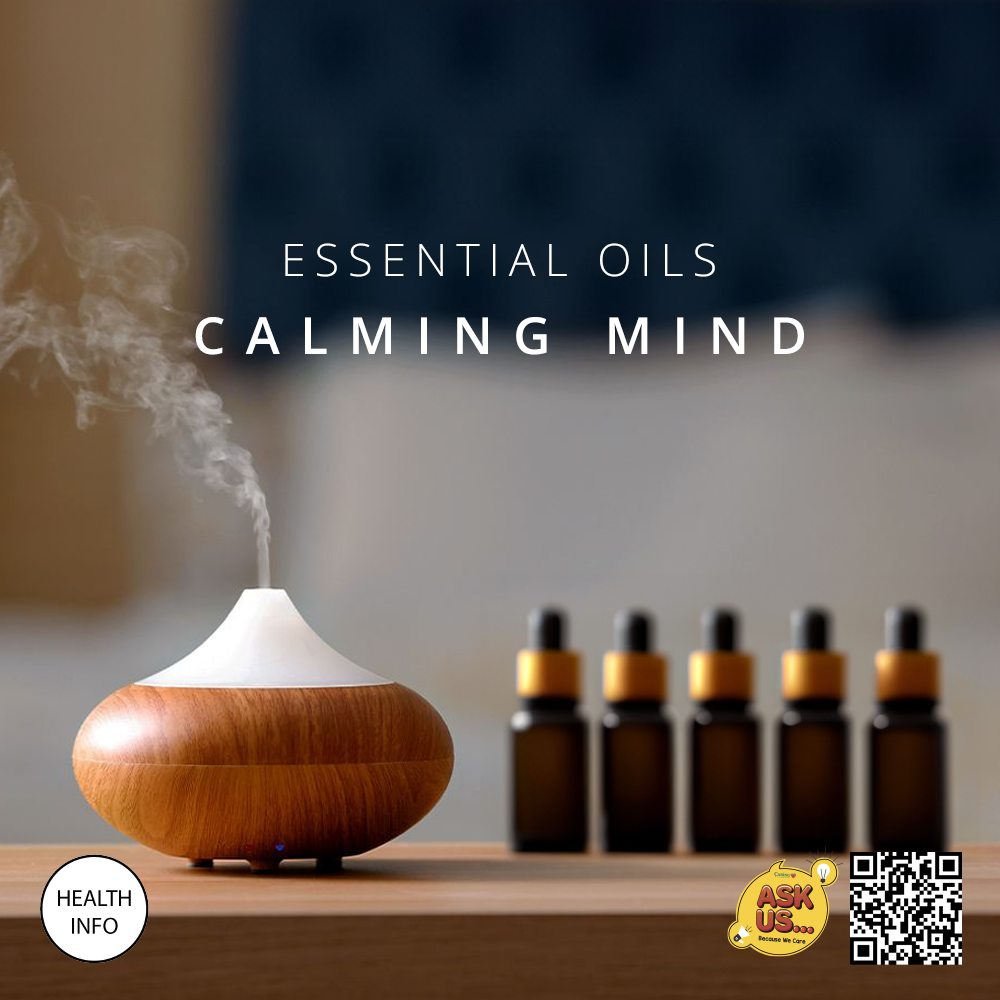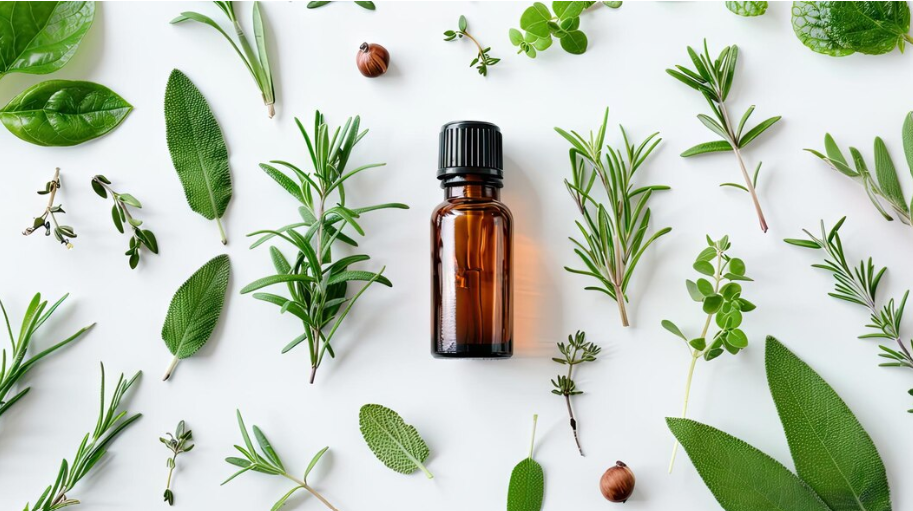- Home
- Health Center
- Health Info
- Essential Oils: Calming Mind
Supplements
Essential Oils: Calming Mind


Essential oils are concentrated plant extracts that retain the natural smell or flavor. They are most commonly used in aromatherapy. When inhaled, these compounds stimulate the olfactory system in the brain, which is connected to areas that process emotions. This can reduce stress and anxiety levels.1
Which Essential Oils Are Best?
Here is our versatile selection of the best essential oils, each with unique calming properties. They can help relax the mind, ease tension, and improve mood, giving you a range of options to manage your anxiety.
- Peppermint: Used to boost energy and aid digestion.
- Lavender: Used to relieve stress.
- Sandalwood: Used to calm nerves and help with focus.
- Bergamot: Used to reduce stress and improve skin conditions like eczema.
- Rose: Used to improve mood and reduce anxiety.
- Chamomile: Used to improve mood and relaxation.
- Ylang-Ylang: Used to treat headaches, nausea, and skin conditions.
- Jasmine: Used to help with depression, childbirth, and libido.
- Lemon: Used to aid digestion, mood, headaches, and more.
How to use essential oils?
Using essential oils for anxiety relief is a simple and straightforward process. There are several methods, each offering a unique approach to harnessing their calming properties.2 Here are some effective methods:
- Aromatherapy Diffusion: One of the most popular methods is to use an essential oil diffuser. Simply add a few drops of your chosen essential oil (like lavender, chamomile, or neroli) to the diffuser filled with water. As the oil diffuses into the air, inhale the calming aroma to help ease anxiety.
- Topical Application: Essential oils can be applied to the skin, but they should always be diluted with a carrier oil (like coconut or jojoba oil) to prevent skin irritation. Apply the mixture to pulse points such as the wrists, temples, or behind the ears. The warmth of your body helps release the scent.
- Inhalation: For a quick and direct method, place a few drops of essential oil on a tissue or cotton ball and gently inhale. You can also add a drop or two to the palms of your hands, rub them together, and then cup them over your nose, taking deep breaths.
- Bath Time: Adding a few drops of essential oil to a warm bath can provide a relaxing experience. The combination of warm water and the oil’s scent can soothe anxiety.
- Sprays: Mix essential oils with water in a spray bottle to create a room spray. Spray your room, pillow, or personal space to create a calming atmosphere.
When using essential oils for anxiety, it’s important to note that they are complementary treatments and should not replace professional medical advice.3 Also, ensure you’re using high-quality, pure essential oils, and always conduct a patch test if applying them to the skin. If you require help or proper guidance, please approach your friendly pharmacists at the nearest CARiNG store.
References:
- Essential oils for treating anxiety: a systematic review of randomized controlled trials and network meta-analysis. Frontiers in public health, 11, 1144404. (Web accessed August 2024). Web link: https://doi.org/10.3389/fpubh.2023.1144404.
- A systematic review on the anxiolytic effects of aromatherapy in people with anxiety symptoms. Journal of alternative and complementary medicine (New York, N.Y.), 17(2), 101–108. (Web accessed August 2024). Web link: https://doi.org/10.1089/acm.2009.0277
- Lavender and the nervous system. Evidence-based complementary and alternative medicine : eCAM, 2013, 681304. (Web accessed August 2024). Web link: https://doi.org/10.1155/2013/681304
Latest Health Info
Unpacking Lactose Issues: Intolerance, Deficiency, and Malabsorption Explained
Ever wonder why some people, or even yourself, are suffering from lactose intolerance? Lactose, the primary sugar in milk and ...
Detect to Protect: Why Cancer Screening Matters
Cancer is a complex group of diseases characterised by the uncontrolled growth and spread of abnormal cells in the body. ...
Get Vaccinated: Protecting Lives, One Shot at a Time
Vaccines are among the most powerful tools in medicine, saving millions of lives by preventing serious diseases. From children to ...



